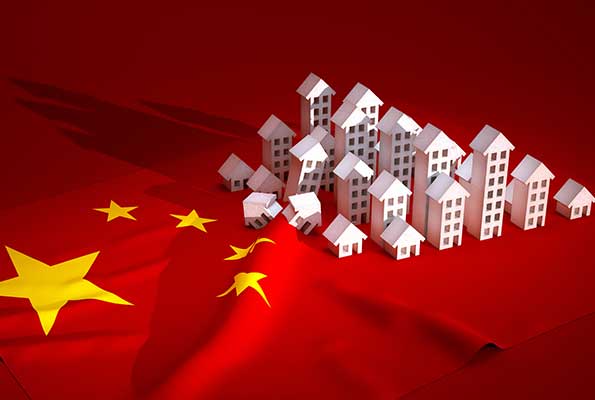Chinese property markets tumbled once again, with domestic biggie Country Garden’s stocks sinking to fresh eight-month lows amid renewed debt fears for the country’s real estate developers.
Country Garden’s Hong Kong-listed shares, on July 24, went down by nearly 7%, its lowest level since November 2022. To make matters worse, Country Garden’s property services arm ‘Country Garden Services’ saw its stocks plunge over 15%.
American financial services giant JP Morgan has already downgraded Country Garden to underweight, apart from having the property giant’s target price and its property services listing by more than half.
JP Morgan’s analysts have further warned that unless the Xi Jinping government offers more policy support, China’s property sector-related liquidity concerns will continue to remain.
As per the reports, the Hang Seng Mainland Property Index, which is a gauge of Hong Kong-listed Chinese property counters, went down by over 5%.
Shares of another Chinese residential property managers company Longfor Group, reportedly went down by 9%. The same trend was visible with other domestic real estate giants like Sunac, Vanke and China Overseas Land and Investment.
Country Garden, recently, made a move to refinance part of a 2019 loan facility, as per a Reuters report. However, the company failed to assure investors of its ability to service its debt.
JP Morgan’s analysts slashed target prices for Country Garden by over 60% to HK$0.90 and Country Garden Services by nearly 70% to HK$6.70.
The recent market bloodbath comes amid the Chinese property sector facing the fallouts of weak real estate activity-related data, with property giant Evergrande’s overdue earnings report exposing the miserable picture around the sector, which is struggling to emerge from a credit crisis after the Xi Jinping government cracked down on its debt levels in August 2020.
“Years of exuberant growth led to the construction of ghost towns where supply outstripped demand, as developers looked to capitalize on the desire for home ownership and property investment,” a CNBC report stated.
Wall Street Bankers have even warned that this poor performance from China’s real estate sector will emerge as a negative drag on its overall domestic economy, which itself is facing a poor recovery post-COVID.
Goldman Sachs economists too have predicted an “L-shaped recovery” for the crises-ridden property market, thus suggesting a steep decline, which will be followed by a slow recovery rate.
The latest official data have also shown a 7.9% drop in property investment for the January to June 2023 period. The figure is steeper than the 7.2% drop reported for the January to May timeline.
China’s second-largest developer China Vanke, while admitting the real estate mess, told CNBC that the sector was “indeed under pressure in the short term” and the situation is “worse than expected.”
Chinese property giant Evergrande already posted a combined loss of USD 81 billion in its long overdue earnings report. The world’s most indebted property developer fell into default in 2021 and announced an offshore debt restructuring program in March 2023, as the company struggled to finish projects and repay suppliers and lenders.
China’s National Bureau of Statistics said that the property sector would gradually stabilize as the broader economy recovers, and is shifting from high-speed development to stable development in the medium to long term.
Media reports suggest that the years of exuberant growth have led to the construction of ghost towns where supply outstrips demand, as developers look to capitalize on the desire for home ownership and property investment.
“This year (2023), due to major drag from the housing markets and consumption, we actually didn’t see the kind of rebound in broader economic growth,” Dan Wang, chief economist at Hang Seng Bank (China), told CNBC.
The official further noted that if the decline in housing investment does not worsen from its current levels, fixed asset investment would likely account for about 1% to 1.5% of annual GDP growth overall.
“A natural rebound in consumption would contribute about 2% to 2.5%. The overall picture is kind of rosy. It’s not difficult to reach the annual target, then there’s not much incentive for the central government to extend the stimulus,” Dan Wang concluded.



